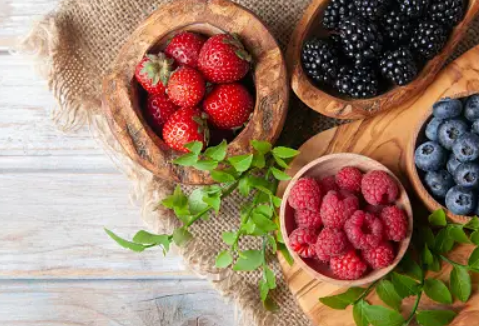British Berry Growers say two-fifths of growers could close by 2026 as costs surge and supermarket pay shrinks. A survey carried out by the British Berry Growers indicated that almost half of the growers involved are not making any profit at all. In this connection, retailers and government urgently need to support the UK berry industry.

According to a new study by the association representing the major growers of berries in Britain, BBG, who represent around 95% of such growers, nearly two-fifths of the country’s berry growers may go bankrupt by the end of 2026, especially strawberry and raspberry farmers. This forecast is given due to rising costs and not enough money being returned from supermarkets, the BBG said.
The BBG survey showed that almost half of the berry growers are no longer making a profit. Additionally, 53% of the growers said that their financial situation is either poor or very poor. The BBG warned that unless the issues are sorted out, there will be major reductions in the availability of fresh British berries in the coming years.
“The survey is a wake-up call,” said BBG’s chair, Nick Marston, adding, “If we are to save this major sector, then action needs to be taken now. The implications of losing British berries would be devastating.”.
More than a third added, 37% of the growers, already considering to prune the production or cutting the business of growing berries at all. Another 39% told that the relationship with retailers was the worst for them up till now. He said fair returns from retailers and help from the government in having an adequate supply of seasonal workers were required.

Berry farmers are dealing with a 30% increase in production costs, an increase that is not being reflected in the prices passed down to supermarkets. Take a box of strawberries, for example. It cost on average 27 pence more in the shops between 2021 and last year, but that was only contributing 3.5 pence to growers’ earnings. There’s part of the inflation that the growers aren’t getting.
Andrew Opie, director of food and sustainability for the British Retail Consortium, said supermarkets are working on getting supplies locally and also keeping the price affordable for consumers. “Food retailers get the bulk of their food from the UK and value their relationships with farmers. They are working hard to limit price increases to consumers who are struggling to afford essentials,” he said.
But even with such efforts to assist the farmers, Marston warned that the situation at hand may be too late for berries. In the case of strawberries, production dropped 5% this year, despite good growing conditions. He said that this is a result of many farmers either leaving the market or reducing the area they are farming.
It is calling on the government to extend the seasonal worker scheme visa from six to nine months, ensuring the workers can participate throughout the growing season. It further called for an improved export system to help growers easily access market opportunities in the EU and beyond. Since the UK left the EU, berry exports have shrunk to one-seventh their pre-Brexit levels, hamstrung by such things as phytosanitary checks.

Without some urgent action, the future of British berry growing looks in the balance; it requires a coalition between retailers and the government to stave off this key sector’s collapse. All other than that, a tremendous amount of fresh berries brought to the UK may just go to scraps, both for farmers and consumers.








